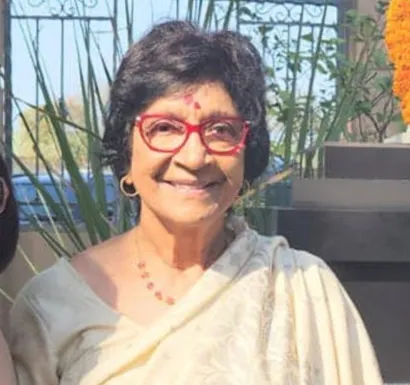
Judge Navi Pillay
Image: File
Navi Pillay, the former UN High Commissioner for Human Rights and eminent international jurist, will receive the 2025 Sydney Peace Prize for a lifetime of advocating for accountability and responsibility in the face of crimes against humanity.
"A former judge on the International Criminal Tribunal for Rwanda, the International Criminal Court, and the first woman of colour to serve as UN High Commissioner for Human Rights, Judge Pillay has consistently championed international justice, truth-telling, and the protection of human dignity," said the Sydney Peace Foundation on YouTube.
Judge Pillay was announced as the 2025 recipient at the Sydney Town Hall yesterday. An announcement ceremony was hosted by Sydney Peace Foundation patron and Lord Mayor of Sydney, Clover Moore.
During her acceptance speech on YouTube, Judge Pillay said she was honoured and humbled to accept the prize but the recognition was not hers alone.
"It belongs to every survivor of injustice, who has found the courage to speak out. It belongs to the women of South Africa who, like my mother, defied a system that silenced them, and it belongs to every human rights defender around the world, who dares to demand dignity, equality and peace."
She said South Africa owed a huge debt of gratitude to young Australians, most of whom were still in high school at the time of SA's protests and activism against racism in sports. Judge Pillay said these protests and activism during apartheid resulted in the expulsion of South Africa from cricket and soccer matches, eventually being banned from the Olympic Games.
"I still remember vividly, pictures of Australian youth running onto the sports fields in Sydney and disrupting matches between the Australian national teams and the whites-only teams from South Africa. You inspired us and taught us to stand up against immoral race laws," said Judge Pillay.
She said she was honoured to join the illustrious group of past laureates, including Mary Robinson, who preceded her as UN High Commissioner for Human Rights, and Archbishop Desmond Tutu.
"Throughout my life as a lawyer in apartheid South Africa, as a judge on the International Criminal Tribunal for Rwanda, the International Criminal Court, and as the UN High Commissioner for Human Rights, I have seen the depths of human cruelty, and the boundless potential for resilience and change. I have witnessed how silence enables impunity and also how truth, when spoken out boldly, can shift the course of history.
"Peace is not simply the absence of conflict. It is the presence of justice. It is the dismantling of systems of oppression, the recognition of indigenous sovereignty, the protection of the vulnerable, and the affirmation that all lives are of equal worth.
"Today we are confronted by wars, climate injustice and rising authoritarianism yet we are also seeing extraordinary movements led by young people, by women, by indigenous communities, demanding transformation, not just reform. These voices echoed the call that peace cannot be achieved without justice and justice cannot prevail without accountability.
"This award strengthens me in my resolve to keep fighting for a world where the rule of law protects all, not just the privileged few. And it reminds us that even in the face of formidable odds, moral courage can triumph."
The prize will be formally awarded to Judge Pillay on November 6 at the Sydney Town Hall.
Related Topics: